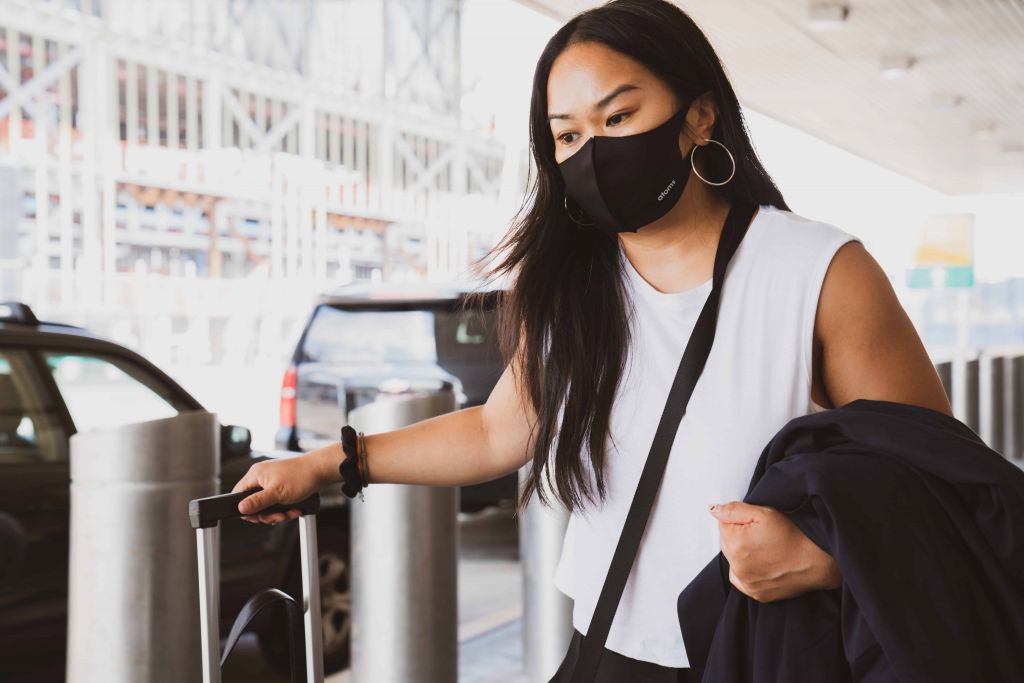As the world’s Covid-19 vaccination rates increase, travel is starting to open up.
Many companies are starting to plan their domestic and international business trips when borders reopen.
This makes now the right time to prepare the best possible travel policy for your company.
What is a travel policy? Does my company need one?
Simply put, a corporate travel policy defines all your company’s rules and procedures surrounding business travel.
It includes how employees should book their trips, what they can and cannot claim, who to contact during emergencies, and what they need to do to be reimbursed.
A great travel policy includes information on allowable cost of booking a hotel or airfare, for domestic and international travel, as well as exceptions for more expensive cities and all the approvals required for travel expenses.
How to write the best travel policy for your company?

-
- Start with clear objectives: These are goals that your company wants to achieve and can include keeping travel cost below a certain ceiling and ensuring that employees are as safe as possible during their travels.
- Consider your travellers’ needs: Do your travellers have specific needs during their trips to common destinations? E.g., are they required to go for Covid-19 screening tests and home quarantine when they get back from domestic and international travels?
- Give options: Employees usually prefer to pick their hotels or airlines. Cost can be controlled by capping the hotel star rating or type of airline ticket e.g., economy or business.
- Address all aspects and possibilities: Your company travel policy needs to be as comprehensive as possible. Check that you have addressed everything from airline bookings to unexpected additional expenses and emergencies.
- Communicate this business travel policy: This document must be readily available to everyone within your company and clearly communicated to all.

Did you can include:
- Policy and process booking for airline, rail, accommodation, and rental car reservations.
- The use of other modes of transportation, such as taxis.
- Rules for on-site spending, including meals, entertainment, and phone calls.
- Security and safety matters.
- The approval process to be followed.
- How to claim for expenses incurred during travel.


business Travel Policy Check List
- Did you address how business travellers should get to and from airports, and to what extent they’re permitted to combine their business travel with their own leisure?
- Did everyone read the document and know what they need to do in an emergency, as well as who they need to contact?
- Does everyone understand that complying with the travel policy will ensure the smooth and easy reimbursement of incurred expenses?
- Do you have a date to review and update this travel policy? An effective travel policy and procedures adapts to changing situations and differing requirements of your employees and your business.

Controlling business Travel Expenses
- A great travel policy should clearly address travel expenses. By making it clear, travellers know what is claimable and what is not chargeable to the company.
- Clearly state that travel costs paid by the company is for the purposes of business travel only – whether to events, meetings, or training. Non-business-related or leisure travel comes out of the employee’s pocket.
- Encourage business travellers to use the most cost-effective mode of transport after taking expected journey time into account.
- Here, are recommendations on how to address the most common travel expenses: accommodation, meals, tips and entertainment.
Accommodation
As mentioned, allow business travellers to make their own choices for accommodation and airlines and cap their budget with the hotel star rating or a maximum claimable amount per room.
You can provide average room rates in each location and ask them to stay within that range. Specify that standard rooms should be the required room type, and clearly outline whether your business will cover expenses such as use of the minibar, Wi-Fi costs and others.
Meals
Paying for meals usually depends on your company’s culture. It is usually easier to offer a daily allowance that covers breakfast, lunch, and dinner. Do you need to address alcoholic beverages? Will this be paid if the drinks were with a client? Include all these possible scenarios in your travel policy.
Tips
Do you need to address tips? If a business traveller decides to add a tip for anything, it is usually out of their own pocket. Make this clear.
Entertainment
Entertainment can cover eating, drinking or any other hospitality. An effective way to manage entertainment expenses is to set a limit and require managerial approval for reimbursement above this amount.


The Benefits Of Setting Business Travel Expense Limits
Many companies find that giving employees control over their own spend reduces overspending. All that is needed are the limits.
For example, meal expenses can be set as an overall allowance per day, giving the employee the choice of how much to spend individually on breakfast, lunch, and dinner.
For ground transportation, a corporate travel policy should clearly advise employees to choose the most cost-effective method considering the journey time. Most business travellers fly economy on short-haul trips.


Handling Business Travel Expenses
Business travellers have a clearly defined method of claiming back their expenses. Consider:
- Asking travellers to submit an expense report for the date, amount, category, location and business purpose of their claim – and decide whether you’d like them to file receipts for all their expenses, or just ones that exceed a certain amount.
- Give them a time frame for submitting expenses – this will help your business maintain a stable and accurate cash flow.
- Similarly, let them know when they can expect money to be credited back into their accounts. Depending on the amount spent, it might be a good idea to clarify who will approve their expenses in each case.


In Summary
- A great company travel policy is adapted to your business’s culture, and fits the needs of your employees, industry, and economy. It needs to be widely circulated and understood.
- Your guidelines and procedures will help business travellers to make decisions within the framework of your corporate travel policy.
- A travel policy should include procedures for all bookings – after all, it’s important that employees are clear on what is expected of them at every point of their business trip.
- It might also be necessary to include a section about the consequences of not following the set guidelines and procedures.


REMEMBER SAFETY FIRST
The safety, security and well-being of employees is at the heart of every business travel policy. It is crucial that a company travel policy has procedures in place, so travellers know how to respond to heighten to personal risk due to a Covid-19 outbreak, severe weather or political unrest in a foreign country.
If your employees are regularly flying out to high-risk countries, consider offering travel safety and security training.
You may find these articles interesting: How to make an effective business travel checklist, A concise business travel guide for the new normal and Now is the right time to use a business travel agency.
To connect with a corporate travel agency that can help you with your business travel needs, go here.
it is important that your employees read your corporate travel policy document for their own safety

